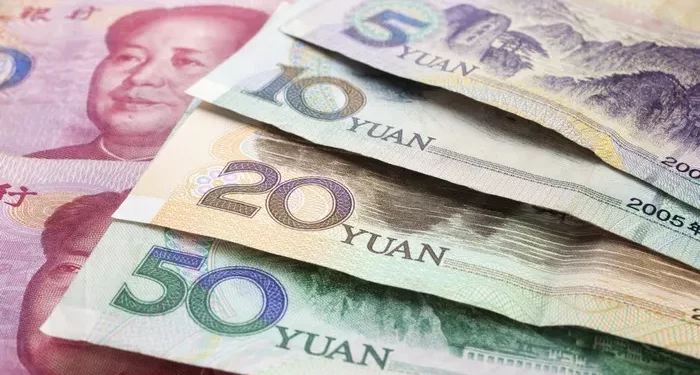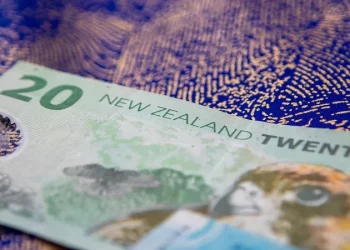In the world of global finance, currency exchange plays a vital role in ensuring the smooth functioning of international trade, travel, and investment. One of the most frequently exchanged currencies in the world is the Chinese Renminbi (RMB), also known as the Chinese Yuan (CNY). On the other hand, the Singapore Dollar (SGD) represents the official currency of Singapore, a financial hub in Southeast Asia. In this article, we will explore the question: “How much is RMB 20 to SGD?” but we will also delve deeper into the intricacies of currency conversion, the factors influencing exchange rates, and how foreign exchange traders approach this task.
Understanding Currency Exchange Rates
Currency exchange rates determine the value of one currency relative to another. For instance, when we ask, “How much is RMB 20 to SGD?” we are essentially inquiring about how many Singapore Dollars can be obtained in exchange for 20 Chinese Yuan. Exchange rates fluctuate regularly due to a variety of economic factors, including supply and demand dynamics, geopolitical events, market sentiment, and the policies of central banks.
Foreign exchange (forex or FX) markets, which are the largest and most liquid financial markets in the world, facilitate the buying and selling of currencies. These markets operate 24 hours a day, five days a week, allowing currencies to be exchanged in real time. The exchange rate between two currencies can be determined through various mechanisms, with the most common being floating and fixed exchange rate systems.
In a floating exchange rate system, like that of both the RMB and the SGD, the value of a currency is determined by market forces such as economic conditions, interest rates, inflation, and geopolitical stability. A fixed exchange rate, on the other hand, occurs when a country’s currency is pegged to another currency, such as the US Dollar.
How Much is RMB 20 to SGD?
As of the latest available data, the exchange rate between the Chinese Yuan (RMB) and the Singapore Dollar (SGD) fluctuates, generally hovering around 0.18 to 0.20 SGD for every 1 RMB. Therefore, to calculate how much RMB 20 is in SGD, you simply multiply the amount of RMB by the exchange rate.
For instance, if the current exchange rate is 0.19 SGD for 1 RMB, the conversion of RMB 20 to SGD would be:
20 RMB×0.19 SGD/RMB=3.80 SGD
Thus, RMB 20 would be equivalent to approximately 3.80 Singapore Dollars, based on this exchange rate.
It is important to note that exchange rates can fluctuate frequently due to changes in the market. Therefore, the exact conversion rate at the time of a transaction may vary slightly, depending on the market conditions and the specific forex provider being used.
Factors Influencing the Exchange Rate Between RMB and SGD
Several factors contribute to the fluctuation in the exchange rate between the Chinese Yuan (RMB) and the Singapore Dollar (SGD). These factors are driven by economic, political, and market conditions. Understanding these influences can provide greater insight into how forex traders and investors anticipate future movements in currency values.
1. Interest Rates and Monetary Policy
Central banks have a significant influence on the value of currencies through their control over interest rates. The People’s Bank of China (PBoC), which governs the RMB, and the Monetary Authority of Singapore (MAS), which governs the SGD, use interest rates as a tool to manage inflation, stabilize the economy, and influence currency values.
When a central bank raises interest rates, it tends to make the currency more attractive to foreign investors, as higher interest rates provide better returns on investments. Conversely, a decrease in interest rates may lead to depreciation in the currency’s value. If the PBoC or MAS makes changes to their interest rate policies, it can lead to fluctuations in the exchange rate between the RMB and SGD.
2. Economic Growth and Trade Relations
Economic growth and trade relationships also have a significant impact on exchange rates. China is the world’s second-largest economy and a major trading partner for countries around the world, including Singapore. When China’s economy performs well, the value of the RMB tends to appreciate due to increased demand for Chinese goods and services.
On the other hand, Singapore, being an open economy, is heavily dependent on trade. Its growth is closely tied to global market conditions, including China’s economic performance. Strong economic growth in both countries can drive the demand for both currencies, impacting the exchange rate between the RMB and SGD.
3. Geopolitical Events and Market Sentiment
Geopolitical stability or instability can significantly affect exchange rates. Any major political events or crises, such as trade tensions between China and other nations, can lead to shifts in investor sentiment. When geopolitical risks increase, investors may seek safer assets like the US Dollar or gold, leading to a depreciation of riskier currencies such as the RMB or SGD.
For instance, during times of political uncertainty, foreign exchange traders may become more cautious and adjust their portfolios, which could lead to fluctuations in the exchange rate between the RMB and SGD. Additionally, market sentiment and global risk appetite can also have an impact on the currency pairs.
4. Inflation Rates
Inflation is another key factor in currency exchange. When inflation in a country is high, its currency tends to lose value because the purchasing power of the currency decreases. Conversely, low inflation rates tend to stabilize or appreciate a currency’s value.
In both China and Singapore, inflation rates are closely monitored by their respective central banks, as they can influence the exchange rate between the RMB and SGD. For example, if inflation rises sharply in China, it may reduce the value of the RMB relative to other currencies, including the SGD.
5. Commodity Prices
China is a major consumer of commodities, particularly raw materials like oil, metals, and agricultural products. The prices of these commodities can have an impact on the value of the RMB. When commodity prices rise, it often signals a strong demand for Chinese goods, which can lead to an appreciation of the RMB.
Similarly, Singapore’s economy is closely tied to global trade and the prices of commodities. As a key financial center, Singapore’s currency is also influenced by shifts in the global commodity markets. Therefore, fluctuations in the prices of commodities such as oil and gold can play a role in determining the exchange rate between the RMB and SGD.
Currency Conversion Methods
Foreign exchange traders and investors use different methods to convert currencies based on their needs. These methods can vary depending on the amount being converted, the currency pair, and the specific forex provider. Below are some common methods of converting RMB to SGD.
1. Spot Market
The spot market is the most common method for currency conversion. In the spot market, currencies are exchanged at the current exchange rate, which is known as the “spot rate.” The transaction is settled “on the spot,” usually within two business days. This is the method used by individuals, businesses, and financial institutions for immediate currency conversions.
2. Forward Contracts
A forward contract is an agreement between two parties to exchange currencies at a specific future date and at a predetermined exchange rate. This method is used by businesses or investors who want to hedge against future exchange rate fluctuations. For example, a company that expects to receive a payment in RMB in six months may enter into a forward contract to convert that RMB into SGD at a fixed exchange rate to avoid the risk of currency depreciation.
3. Foreign Exchange Brokers
Forex brokers offer currency conversion services to individual traders and businesses. They provide access to the forex market, allowing clients to buy and sell currencies in real-time. Forex brokers often offer competitive exchange rates and charge a commission or spread on the transaction. These brokers also provide trading platforms for forex traders to monitor exchange rates, perform technical analysis, and execute trades.
4. Currency Exchange Services
Banks, currency exchange kiosks, and online services also provide currency conversion services. These services are often used by travelers who need to exchange their home currency for foreign currency. The exchange rates offered by these services may differ slightly from those available in the forex market, as they incorporate a margin to cover costs.
Conclusion
When asking “How much is RMB 20 to SGD?”, we are essentially inquiring about the conversion of Chinese Yuan into Singapore Dollars. As of recent data, RMB 20 is approximately equivalent to 3.80 SGD, depending on the prevailing exchange rate. However, this exchange rate is not static and can fluctuate based on numerous factors such as interest rates, economic growth, geopolitical events, inflation, and commodity prices.
Forex traders and investors closely monitor these factors to make informed decisions about currency exchange. Whether you’re an individual traveler, a business, or an investor, understanding currency conversion and the forces that drive exchange rate movements can help you navigate the complex world of foreign exchange.
As global financial markets continue to evolve, the value of currencies like the RMB and SGD will be influenced by ongoing economic trends, monetary policies, and geopolitical dynamics. By staying informed and understanding the intricacies of the foreign exchange market, individuals and businesses alike can make more strategic decisions when converting currencies.
Related Topics:


























